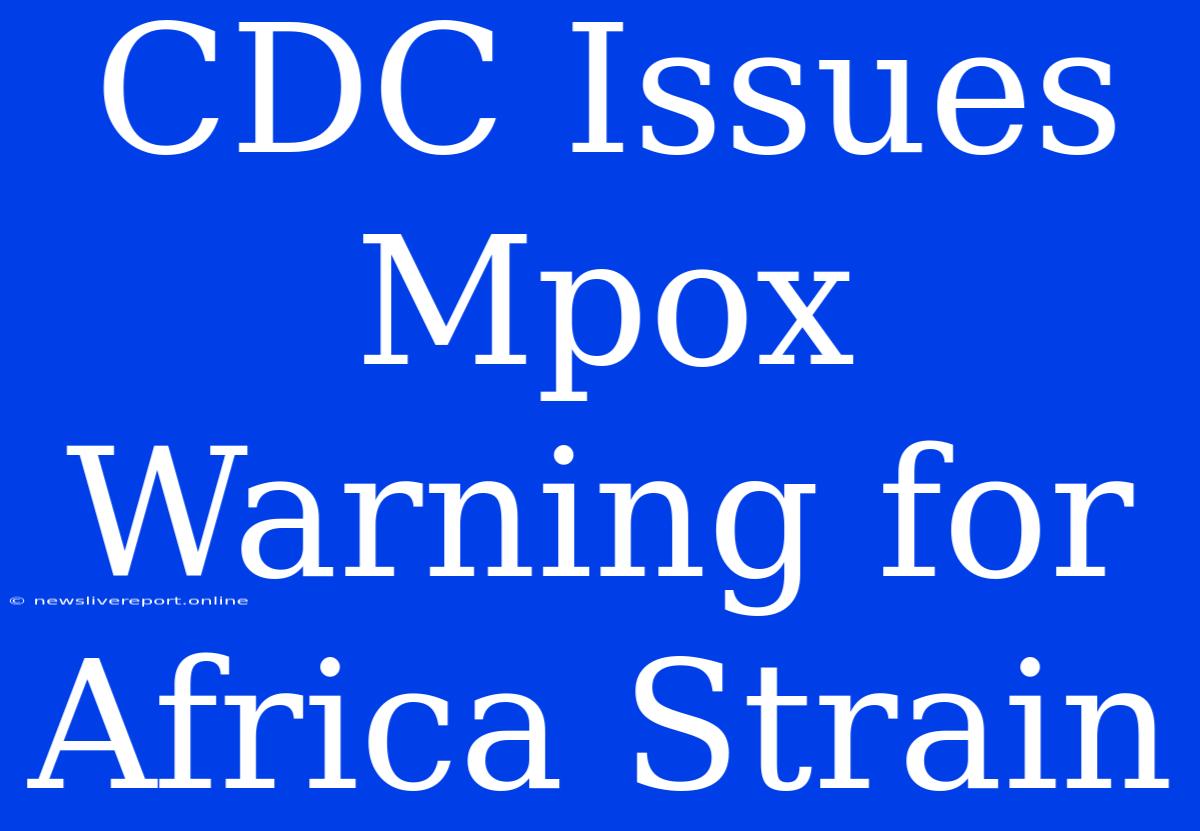CDC Issues Warning: New Mpox Strain Spreading in Africa, Potential for Global Impact
The Centers for Disease Control and Prevention (CDC) has issued a warning about a new strain of Mpox, known as the "Central African Clade," circulating in parts of Africa. This strain is distinct from the one predominantly seen in the recent global outbreak and could pose a serious threat due to its potentially higher transmission rate and severity.
What Makes the Central African Clade Worrying?
The Central African Clade of Mpox virus is characterized by:
- Higher Transmission Rate: It appears to spread more easily than the West African Clade, which was responsible for the recent global outbreak.
- Increased Severity: Individuals infected with the Central African Clade are at higher risk of experiencing more severe symptoms and complications, including death.
- Limited Access to Treatment and Vaccines: Access to effective treatment and vaccines for Mpox is limited in many parts of Africa, making the potential impact of this new strain even more concerning.
The CDC's Warning
The CDC emphasizes the importance of staying informed about the evolving situation and taking necessary precautions, especially for those traveling to or from affected regions.
Recommendations for Travelers:
- Stay Informed: Check the CDC website and other reliable sources for updated information on Mpox outbreaks.
- Consult Your Doctor: Discuss travel plans and potential risks with your healthcare provider before traveling to affected areas.
- Practice Safe Travel: Avoid contact with wild animals, limit exposure to infected individuals, and practice good hygiene.
- Get Vaccinated: If eligible and traveling to a high-risk area, consider getting vaccinated against Mpox.
Global Implications
The emergence of a new and potentially more dangerous Mpox strain in Africa highlights the importance of global surveillance and collaboration to prevent further outbreaks and contain the spread.
Key Takeaways
- The Central African Clade of Mpox is a cause for concern due to its higher transmissibility and severity.
- Travelers should be aware of the potential risks and take necessary precautions.
- Global cooperation and surveillance are crucial to prevent the spread of Mpox and protect vulnerable populations.
Stay informed, stay safe, and continue to monitor the situation closely.

